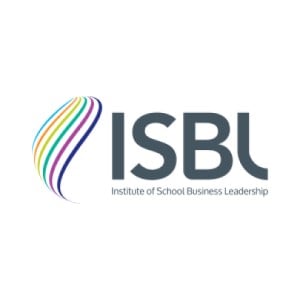Meet ISBL CEO Stephen Morales.
It’s been ten years since Stephen Morales took on the role of CEO at the Institute of School Business Leadership. Today, we’re kicking off our ‘ISBL Spotlight’ series by taking a look back at some of the most notable achievements during Stephen’s tenure and gaining some insight into how he feels the school business profession has evolved as a result.
Hello Stephen! It’s certainly been a busy ten years for you in the role of CEO. Can you tell us a little bit about what you’ve been up to?
As the Chief Executive of the Institute of School Business Leadership (ISBL), I have dedicated the last ten years of my career, in a national role, trying to unleash the potential and promote the professionalisation of school business leaders.
During this time, ISBL has trained thousands of school leaders in the areas of finance, effective resource management, procurement, estates management and HR. We have secured numerous government contracts including a development programme for clerks, better access to financial expertise for primary schools, the school resource management adviser (SRMA) initiative, and, more recently, the trust CFO mentoring pilot.
I strongly believe that school business professionals and indeed their leadership and governance colleagues are better equipped, more sophisticated and technically stronger as a result of ISBL's work over the last decade. As a standing member of the DfE's Financial Reporting Programme Board, I am privy to data that supports this assertion.
As we know, the education sector is incredibly fluid, and the roles of school business professionals across the UK have undergone significant changes. What role have you and ISBL played in that?
As part of our vision for a professionalised workforce of school business leaders, in 2015, we invested in the development of professional standards that are now nationally recognised and featured in the Academy Trust Handbook.
In 2017, I led the complex transition of the National Association of School Business Management to institute status. The process involved making a robust case to Companies House, securing Secretary of State approval and ensuring unwavering support from key sector stakeholders.
As well as leading transformational change at ISBL, we have supported trust leaders across the country with a range of strategic priorities, including the importance of a clear organisational culture and values, organisational design, preparing for growth, developing central teams, striking the balance of autonomy over funding, and how to attract and retain talented staff by becoming an authentic employer of choice. In addition, we work with numerous think tanks and sector bodies, addressing some of the main issues confronting society.
I have been a long-standing advocate of joined-up leadership. I have spent my career promoting the importance of a strong leadership triangle where pedagogy, business and governance operate seamlessly and inclusively together. To that end, in 2021, I published a paper entitled "Barriers to joined-up leadership in the English education system".
You’re incredibly passionate about the development of the school business profession – how do you feel you’ve contributed to this so far, and what impact do you think this has had in the wider sector?
In my current capacity as CEO, I believe I have fostered a culture of continuous improvement, where we embrace new thinking and individual contributions are recognised and valued. As an institute, we are only as strong as our members' insights and inputs.
ISBL Professional Standards set clear expectations of School Business Professionals. The standards have been sector-led and have been designed in close consultation with frontline practitioners, relevant professional bodies, and national education associations, and with appropriate input from the Department for Education.
It is my belief that the success of any education system cannot exceed the quality of its workforce. Highly motivated, skilled and valued education leaders are central to any high-performing education system. The mix of ingredients including strong culture, robust structures and effective talent management is essential to any successful school or trust and, most importantly, the outcomes for the children they serve.
Any people strategy must successfully attract and retain committed and highly motivated teachers if we are to ensure optimum pupil attainment. But supporting the personal and professional ambition of the staff, both pedagogical and non-pedagogical, should be a priority for all schools and trusts.
I understand the heavy scrutiny on trusts and the effort required to adhere to a very demanding regulatory framework. I have a deep understanding of these requirements, and I have been close to many of the policy developments related to trust accountability. I will always advocate for proportionate risk-based accountability underpinned by important checks and balances. However, any accountability framework should not unreasonably divert resources away from the core activity of teaching and learning.
I have a background in strategic finance and understand the importance of rigorous evidence-based planning, optimal resource management and robust controls. Developing the sector’s capability in the area of resource management is at the heart of ISBL’s charitable objects.
As a sector leader, I am not afraid to challenge orthodoxy, and I will always encourage innovation and creative thinking.
My leadership approach is underpinned by the Boyatzis self-directed learning model characterised by a continuous improvement loop of plan, do, review and reflect.

ISBL Team
ISBL is uniquely dedicated to supporting every version of the school business profession operating across our school system


